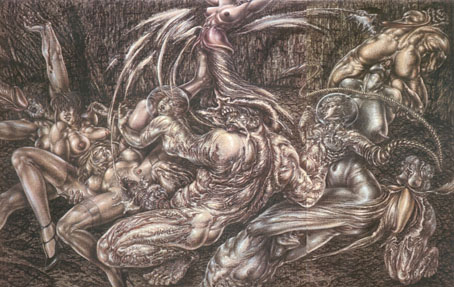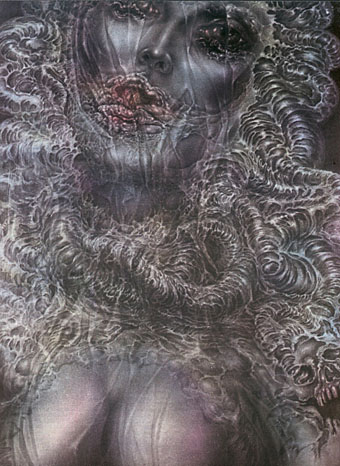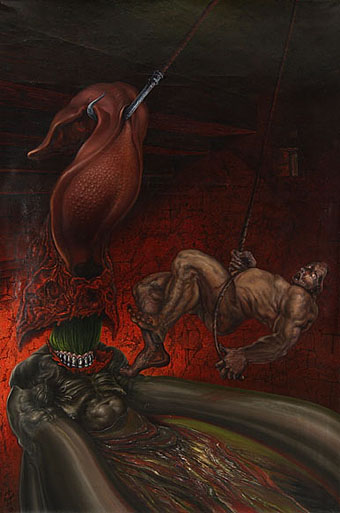Hommage à KS.
The web isn’t the best place to see works by this extraordinary German artist, most of what’s available tends to be tiny thumbnails which give no impression of the detail in her drawings and paintings. Ruppert is another artist who’s been brave enough to try illustrating Lautréamont’s Maldoror but I’ve yet to see anything of her interpretation. Given the nature of both book and pictures one might easily pair any number of her intense and erotic works with Lautréamont’s words.
La Décadence.
These are some of the better online samples, the last one coming from her official site (now defunct, unfortunately) which also includes some recent black and white work but little else. The curious are advised to search book dealers for print portfolios or exhibition catalogues.
See also:
• Sibylle Ruppert, 1942–2011
• Sibylle Ruppert revisited
Tear out (1984–87).
Elsewhere on { feuilleton }
• The fantastic art archive
Previously on { feuilleton }
• Maldoror illustrated




I see a great influence of her work on your own. Or is it the other way around? I don’t know how old she is…Anyway, praise, to her and to you!
Best!
I am sure you’re not surprised to hear that I love it.
Ha, not surprised at all, Wiley.
Márcio: I’ve never seen enough of her work to be influenced at all and didn’t even know about her until someone sent me some photocopies several years ago.
There are aspects of her style which superficially resemble other artists such as Giger (obviously) and Bertrand, even Bob Venosa if he’d ever painted weird erotic stuff. But I think it’s less a case of anyone looking over the shoulder of others and more that this kind of improvised style generates certain organic forms as a part of its process regardless of the artist involved. You see similar forms in the automatic drawings of Austin Spare and the decalcomania paintings of Max Ernst, Oscar Dominguez and others. I’ve found these forms emerge in my own work quite naturally, and when they do you can choose either to leave them as vaguely organic abstractions (as I did with some of the paintings I was doing in the 1990s) or develop them into growths, figures, creatures or whatever.